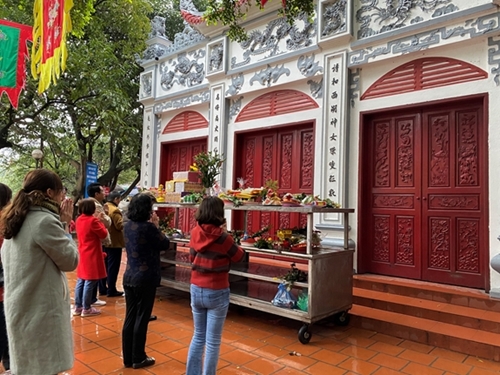February 06, 2020 | 21:00 (GMT+7)
Foreigners highly appreciate Hanoi’s timely response to nCoV
PANO - Hanoi recently issued an urgent directive to close historical and cultural relic sites as well as tourist destinations in the city amid the complex situation of the acute respiratory disease caused by the novel coronavirus (2019-nCoV). The timely response of the municipal People’s Committee was highly appreciated by foreign tourists.
    |
 |
|
Few people worship in front of Tay Ho Temple which has closed to visitors to prevent the acute respiratory disease caused by nCoV |
Lee Min Jun, a visitor from the Republic of Korea, said that protecting people and tourists from the disease is the most important thing now. He said that he still felt comfortable not having a chance to take a look inside the Temple of Literature (the first University in Vietnam).
Natalie Paley, a Russian tourist, said that it was a pity for her that she could not visit historical and cultural relics in the capital city of Vietnam on her first visit to the S-shaped country. However, she was impressed by Hanoi’s response to the disease. She recalled the time when arriving in Ngoc Son Temple, she received free face masks from teams formed by the local authorities. “You have done a good job in preventing the acute respiratory disease caused by nCoV”.
In realizing the directive, popular destinations, including Tran Quoc Pagoda, Quan Thanh Temple, Ngoc Son Temple, Temple of Literature and Westlake Temple were closed to visitors on February 5 to limit the gathering of large numbers of people to prevent the spread of the deadly virus.
Chairman of the People’s Committee of Quang An ward said that the locality has provided 15,000 face masks to local people and tourists at seven temples while promoting information dissemination and inspection of food safety at restaurants.
According to the directive, departments, organizations, and people’s committees of districts and towns are asked to halt activities at local historical and cultural relic sites and tourist destinations, where many people gather, and update local people and tourists on the notice.
The units should promote inspection to prevent violations of higher levels’ directives while taking measures to prevent the spread of the disease.
Translated by Tran Hoai